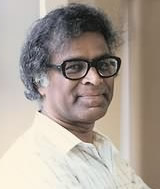 “The three most difficult things for a human being are not physical feats or intellectual achievements. They are, first, returning love for hate; second, including the excluded; third, admitting that you are wrong.”
“The three most difficult things for a human being are not physical feats or intellectual achievements. They are, first, returning love for hate; second, including the excluded; third, admitting that you are wrong.”
I used this quote from Anthony DeMello as part of a talk I gave to graduating seniors a few years ago. I don’t know if any of those students remember the quote, but it has stuck with me. This is as good a summary of Christian ethics, or human ethics for that matter, as I have found.
It’s the third feat that has had my attention lately. DeMello did not write, “Admitting when you are wrong.” We are all too prone to self-delusion for that to be effective. DeMello wrote, “Admitting that you are wrong.”
This is more than acknowledging when we come to the wrong conclusion or take a course of action that doesn’t work out. This is bigger. We are wrong simply because our perspectives are limited. Always. Our opinions and beliefs, no matter how well intentioned, are always based on our current, incomplete understanding. We are always, as the Apostle Paul says, “Seeing through a glass darkly.”
What I thought I knew and what I believed wholeheartedly when I was 20 is quite different from what I think I know and what I believe now 45 years later. It’s not that I was totally wrong at 20. I simply have learned some things since then. I am wiser now than I was then and my perspective has broadened. Hopefully that deepening and broadening of perspective will continue. Knowing that reminds me that at no time do I have the full, clear picture, and the more adamant I am in my opinion, the more likely it is that my perspective is clouded.
When it comes to issues of conscience, justice, morals, sexuality, race, and other thorny matters of human experience, we are particularly prone to having strong but limited views. In fact, the more intense our views, the more likely it is that we will hunker down and not let in any new light. When such issues get reduced to who’s right and who’s wrong, we can be sure that we have missed the point, and the truth.
 “Justice begins with recognition.” Those were the words of President Obama in his eulogy for Clementa Pinckney. Compassion also begins with recognition. Recognition is about waking up, looking around, paying attention, not as we normally think of paying attention, but more like a child, hands and nose on the glass, eyes and mouth wide open, seeing a tank full of dazzling tropical fish for the first time.
“Justice begins with recognition.” Those were the words of President Obama in his eulogy for Clementa Pinckney. Compassion also begins with recognition. Recognition is about waking up, looking around, paying attention, not as we normally think of paying attention, but more like a child, hands and nose on the glass, eyes and mouth wide open, seeing a tank full of dazzling tropical fish for the first time.
Part of my work as a psychotherapist was to be curious about those things that people took for granted and did not see as options in their own lives. By being curious and asking questions, the other person had the opportunity to look as assumptions they took as fact or as “just the way things are” and instead looked at them as choices they had made. These assumptions formed their world-view, their self-view, and their perspectives about right and wrong, good and bad. Until they saw them anew, recognized them as choices, they were stuck.
Without curiosity, challenge, or for most of us, crisis, those assumptions go unexplored, even unrecognized.
DeMello’s three feats are not mutually exclusive. We don’t take them on separately. Each time we soften and deepen in one task, the other two tasks clarify and also get more complicated. As we admit we are wrong, a natural step is to return good for evil and to include “the least of these.” Life keeps presenting us with new lessons disguised as obstacles.
At a presentation a few years ago, the featured speaker began by saying, “What I am going to tell you is not the truth. It is, however, our best understanding at this time.” DeMello would have been proud.
0 Comments until now
Add your Comment!